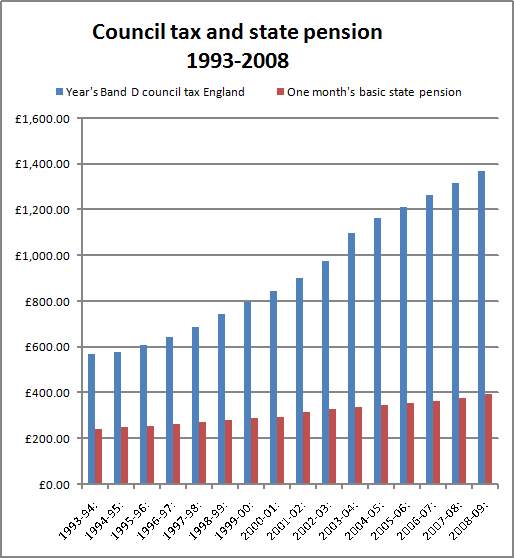
U-turn leaves losers
EDITORIAL NOTE - THIS PARAGRAPH IS NOW OUT OF DATE - SEE
JULY
FOR LATEST POSITION
The Government has been forced into an embarrassing U-turn over its plans to
scrap the 10p rate of tax paid on low incomes from earnings and pensions. The
change will go ahead. But some compensation will now be paid to some of the five
million households left worse off by it this tax year. Exactly how the scheme
will work will not become clear until the details are published in the autumn.
But already it seems that it will be rough and ready and leave winners and
losers in its wake.
As Saga has been reporting since the original plans were announced in March 2007 people under 65 with incomes of about £15,000 or £16,000 will pay more tax this year than they did last and another group on earnings up to £19,355 will pay more tax than they would have done if the Chancellor had made no change at all. Many of those affected have retired early on small pensions. Others are low paid people many of them working part-time. Until recently the Government has insisted the problem was being exaggerated and there was no need to worry – tax credits and other measures meant this group were in fact better off not worse off.
But as MPs canvassed on the doorstep for the local elections in England they realised the depth of anger about it. And 40 backbench Labour MPs threatened rebellion by voting with the Opposition to force the Government to pay compensation. Details of exactly what the Government will do are still sketchy. But here is what we know.
For people aged 60 to 64 the Government is looking at paying compensation by an addition to the winter fuel payment. The Treasury is suggesting it could be a flat rate £100 addition for everyone of that age including those who have gained from this year’s tax changes. It would exclude people under 60 and the estimated 300,000 men aged 60 to 64 who could get the winter fuel payment but do not claim.
It is even less clear how the scheme will work for low paid childless people in work. The Chancellor will probably change the rules for getting working tax credit. It may be extended to include people under 25, those working fewer than 30 hours a week and anyone earning £13,000 or more
.One thing is clear. The Government has no intention of compensating everyone who has lost out. It will concentrate on those two groups – pensioners aged 60 to 64 and low paid workers without children who currently cannot claim working tax credit.
Council tax
The news on council tax was not too bad this year. Across England the
average rise was 4%, the lowest since 1994. In Wales it rose by 3.9%. But that
still means council tax in England has doubled since 1997 – and risen nearly two
and half times since it began in 1993. The state pension has gone up much more
slowly. In 1993/94 it took 10 weeks’ pension to pay a year’s council tax. Today
it takes 15 weeks’ pension.

In Wales council tax is about 75% of the level in England and rises pretty much at the same rate. In Scotland the council tax has been frozen in 2008/09 everywhere except Stirling where it has fallen slightly. That is part of a deal done by the Scottish Government as it consults on scrapping the council tax altogether. It plans to replace it with an extra 3p on income tax. It says that would raise as much money and leave 90% of households better off. However, since the plans were published tax experts have said that the arithmetic does not add up. Not least because although the Scottish Government has the power to add up to 3p on the basic rate of tax – taking it to 23p in the pound – it has no powers to add 3p onto the higher 40p rate. Unless the UK parliament extends the Scottish Government’s powers the plans may never get beyond the consultation stage.
High rise flats

Forget falling prices for homes – especially for city centre flats – in the UK. Four slender blocks with views over Hyde Park are going to set new records when they are completed in 2010. Designed by the world famous Richard Rogers partnership the 86 flats in the Knightsbridge development – next to the Mandarin (Hyde Park) Hotel – will be fitted out with floor to ceiling fridges, baths carved out of solid wood, and genuine marble work surfaces. Some will have bullet
-proof windows, private direct lifts from the ground floor – accessed by iris scanner – and a panic room just in case all that fails to protect the wealthy occupants. One penthouse has already been sold for a rumoured £100 million. Even smaller apartments on lower floors will cost an eight figure sum. The billionaire brothers Christian and Nick Candy who are developing the site are not stopping there. They have bought the 12.8 acre site of Chelsea Barracks from the Ministry of Defence for nearly a billion pounds and are planning an even bigger development of luxury homes.Spanish practices
Money of note
Figures from APACS – which runs the plumbing our money travels through – show that last year we made 2,750,000,000 visits to cash machines and took out £180,000,000,000. The average withdrawal is £65 but it’s just five days before we’re back asking for more. Add on the cash we get from other places and every adult is spending a twenty pound note every day of the year. Not bad for a 2600 year old invention!
Phishing
More and more of us bank online. But as we do there are more and more the
crooks trying to get their hooks into our money. It is called ‘phishing’ because
they send us bait and when we bite they haul in our cash. The bait is an email
which looks as if it is from your bank and probably warns you of restrictions to
your account
Phishing attacks doubled in 2007 and are up again this year – three times as many in the first quarter of 2008 as there were two years ago. There are simple rules to keep yourself – and your money – safe. First, always use up to date anti virus and firewall software. Second, never ever ever click on a link in an email which seems to be from a bank. Always contact your bank using its own website in the normal way. Third, never open an attachment with an email from anyone unless you know and trust them implicitly and are expecting it. Attachments can contain software which sits in your computer and sends data back to thieves. Fifth when you do access your bank account make sure there is an image of a locked padlock or an unbroken key in the bottom right of your browser and check the web address begins ‘https:’ not ‘http:’